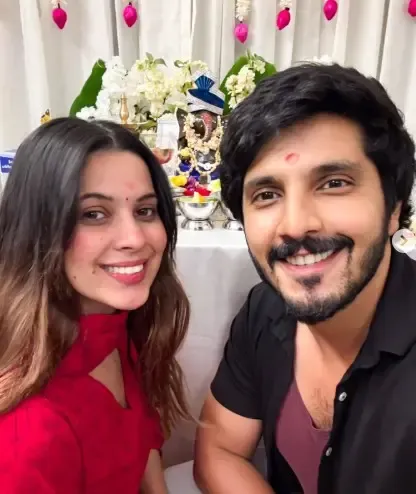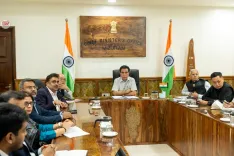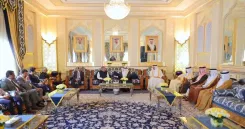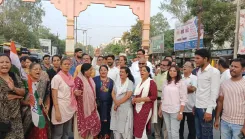Is India Close to Being Free from Maoist Terrorism?
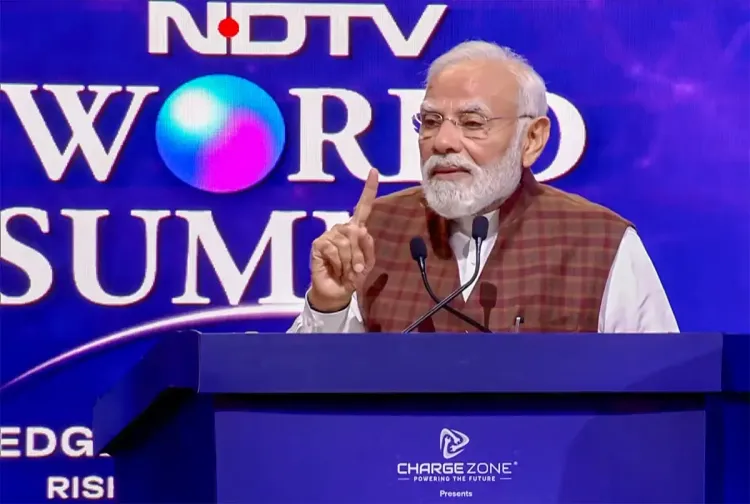
Synopsis
Key Takeaways
- Maoist terrorism in India is significantly declining.
- Only 11 districts remain affected by insurgency.
- Recent surrenders of 303 Naxalites mark a turning point.
- The government emphasizes development alongside security measures.
- Communities are rebuilding, exemplified by the Bastar Olympics.
New Delhi, Oct 17 (NationPress) In a resolute address, Prime Minister Narendra Modi proclaimed that the menace of Maoist terrorism in India is approaching its conclusion, assuring that it is his personal commitment that the nation will soon be liberated from this threat.
In a display of deep emotional sincerity, PM Modi denounced the prolonged shadow of Maoist violence that has hindered development and taken innumerable lives, especially among the most vulnerable villagers, farmers, and tribal communities.
His comments, made in a charged atmosphere, highlighted a significant reduction in Maoist influence and heralded a promising future for regions affected by this violence.
During his passionate speech at the NDTV World Summit in New Delhi, PM Modi spotlighted the plight of victims who had recently traveled to Delhi, spending a week advocating for their voices to be acknowledged.
“These individuals were impoverished villagers, farmers, and tribal members—some with amputated limbs—standing with folded hands, holding a press conference to ensure their message reaches the populace, not those who protect Maoists while misusing the Constitution,” he stated, denouncing what he referred to as “urban Naxals” for allegedly concealing Maoist atrocities during previous Congress-led administrations.
PM Modi criticized the systemic neglect that left vast regions of India’s hinterland without schools, hospitals, and essential infrastructure for over 50 years due to Maoist disruptions.
“Maoist terror is a profound injustice, a sin against our youth,” PM Modi declared, sharing the pain of countless mothers who lost their sons to Naxal violence.
The Prime Minister’s optimism is rooted in measurable advancements. He revealed that of the 125 districts once afflicted by Maoist insurgency, only 11 remain impacted, with merely three districts categorized as highly vulnerable.
A notable achievement occurred in the past 72 hours, with 303 Naxalites, including high-value targets with bounties reaching up to ₹1 crore, surrendering to authorities.
“These were not just ordinary Naxalites. They are now ready to accept the Constitution,” PM Modi remarked, crediting this change to his government’s dedication to constitutional values.
This wave of surrenders, he argued, indicates a turning point, as former insurgents are opting for faith in India’s democratic framework over violence and are embracing the Constitution.
PM Modi highlighted transformative changes in areas like Bastar, formerly a Maoist stronghold, where tribal communities are now organizing the Bastar Olympics—a symbol of cultural and social revival.
“This Diwali will be different in regions scarred by Maoist terror,” he assured, envisioning celebrations free from fear.
His government’s emphasis on development, combined with robust security efforts, has significantly diminished Maoist influence, paving the way for schools, hospitals, and economic opportunities.
“The day is not far when India will be liberated from Maoist terror,” PM Modi asserted, labeling this promise as his personal commitment.


